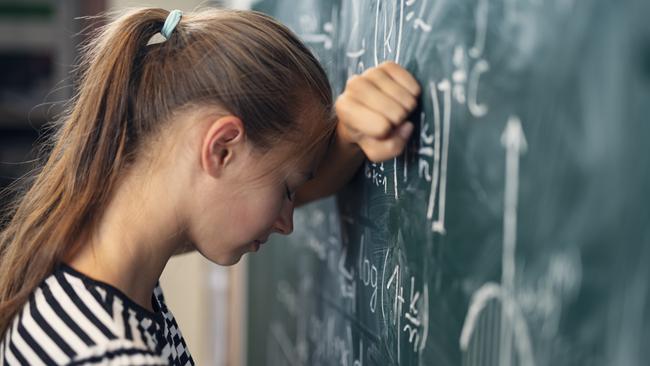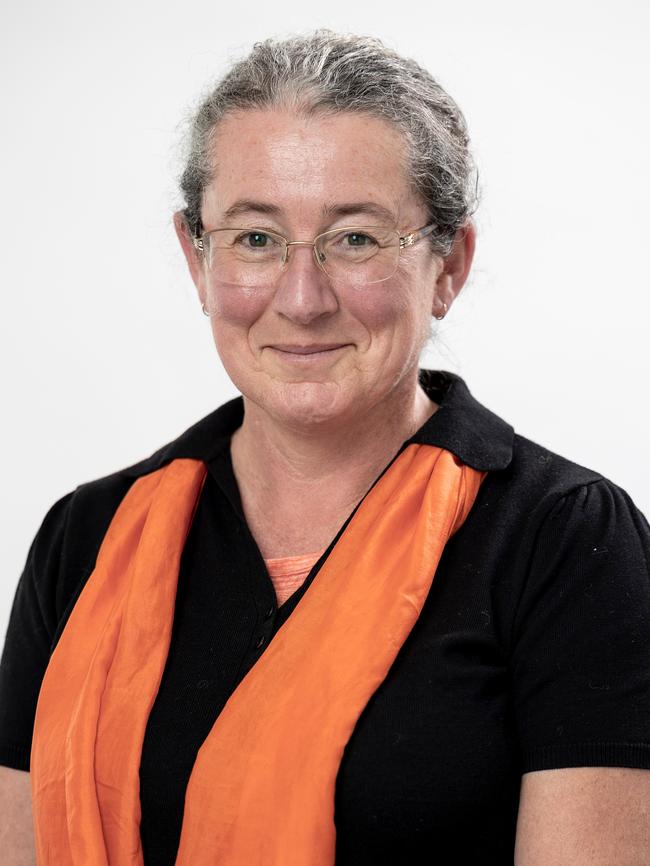Girls keep their distance from science and maths
Girls still trail boys in mathematics and science in Australia, according to regular nationwide surveys.

Girls still trail boys in mathematics and science in Australia, according to regular nationwide surveys. Despite extensive government efforts to encourage girls to buck historic trends and consider STEM education and STEM career paths, the gender differential has proved hard to shift.
Helen Watt, professor of educational psychology at Sydney University, says in one indication, fewer Australian adolescents, particularly girls, choose to study advanced maths in secondary school.
“There’s a very robust participation gap over decades in the most advanced mathematics,” Watt says, adding that girls will generally only choose to study advanced maths if they see maths as useful and valuable, and studies of girls’ and women’s occupational goals have found that girls, much more than boys, tend to choose careers that will make the world a better place.
“So putting those two bodies of work together tells us that we – educators, policy-makers and media – need to illustrate the kinds of careers that do involve advanced mathematics to show that there are socially valuable careers that require maths.”
Ingrained ideas of gender also influence girls and young women’s educational and career choices – their peers, their families, and the media (including social media) play a part.


Watt says adolescents, particularly girls, mostly seek career advice from their mothers, and secondly from their friends. Teachers and guidance counsellors are not the chosen sources of information. “We can’t ignore the huge, powerful effect of socialisation,” she adds. Informed by rounds of public consultations in 2022, the federal government’s Working for Women strategy overview includes positions on children and school, saying “gender stereotypes see girls and boys treated differently from when they are babies” and gender stereotypes “shape the vocational aspirations of school-aged children”.
The international Trends in International Mathematics and Science Study (TIMSS) began in 1995 and tests thousands of boys and girls in mathematics and science in each of 64 nations in the equivalent of year 4 and year 8 of school.
In year 4 maths, the TIMSS surveys have found girls in Australia have been consistently outperformed by boys, and boys have outpaced girls even more significantly since 2019. Australia, along with France, now has one of the widest gender gaps in the world for this level. In year 4 science, again, girls do not do as well as boys.
In Year 8 maths, girls have routinely been outstripped by boys, with a significantly increased decline since 2019. In Year 8 science, girls again have been outpaced by boys.
“There’s something about mathematics, more than any other subject, where for some reason it’s totally socially acceptable for girls to giggle and say: ‘I was never any good with numbers’,” Watt says. “This is really not good.”
She has found that maths teachers on average have significantly lower expectations of girls’ achievements in mathematics. “We really do need to be concerned that girls’ engagement is not being equitably fostered to the same extent as boys, with flow-on impacts, sometimes on achievement,” she adds.
Australia’s 2023–24 Youth in STEM survey by YouthInsight for the federal Department of Industry, Science and Resources, found boys’ numeracy scores were higher than girls’, and girls’ literacy scores were significantly higher than boys’.
The survey found girls’ interest in STEM subjects had not changed much since the program began in 2018-19. Girls were most interested in science (63 per cent) of all the STEM subjects and least interested in engineering (29 per cent). Of the sciences, girls were most interested in biology.
Girls’ confidence in all STEM subjects fell as they got older, the survey found, and girls in years 6 to 8 were less likely than boys to choose to study STEM elective subjects.
More girls than boys said they wouldn’t choose to study STEM subjects in the future because “they are too hard for me” (52 per cent compared with 40 per cent); “I’m not very good at math” (48 per cent compared with 39 per cent), and “Don’t think I’m smart enough” (42 per cent compared to 31 per cent”).
Terry Fitzsimmons, associate professor in leadership at the University of Queensland’s business school, says he found there were significant gender differences when he and his colleagues were working on a broad-based study of adolescents’ confidence and career intentions in Queensland in 2018.
Girls in single-sex schools were surveyed for the research, and “the biggest surprise from our study of 10,000 kids was they had already rock-solid perceptions of career interests by year 7,” Fitzsimmons says.
The stereotypes are already in place, he points out, but they can be leveraged, adding that if girls want to work in a caring profession, they should understand that building bridges can be about connecting communities or building hospitals, and designing different medical instruments can save lives.
Female role models are also important in countering ingrained gender stereotypes.
“Women who are STEM professionals go in and talk to the girls about STEM careers, and ‘you can be what you see’, is really, really influential,” he says, “but it just doesn’t happen anywhere near enough.”



To join the conversation, please log in. Don't have an account? Register
Join the conversation, you are commenting as Logout